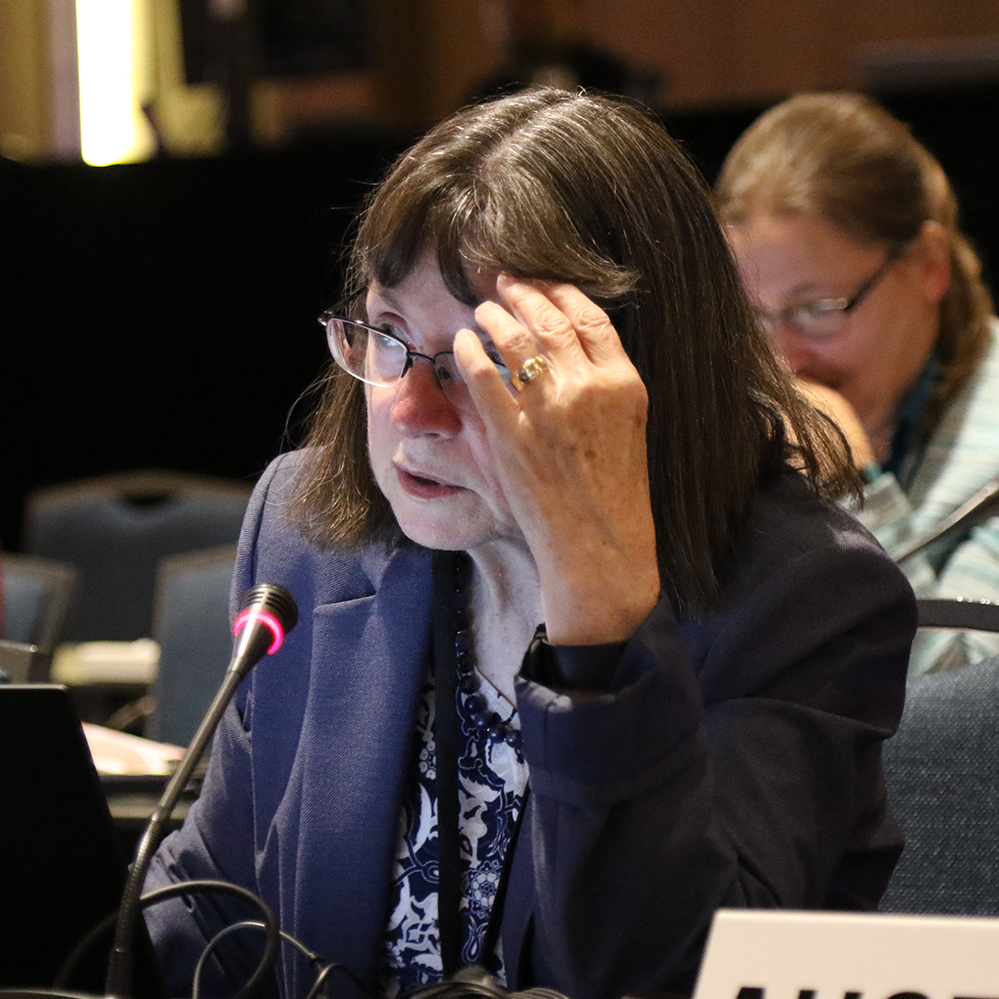Internationally developed guidance on managing food allergens crucial
Jenny Scott is Senior Advisor in the Center for Food Safety and Applied Nutrition of the U.S. Food and Drug Administration. She co-chaired the working group on the proposed draft code of practice on food allergen management for food business operators. Jenny explains the importance of the work on allergens.

Jenny Scott co-chaired the Codex work on allergens with Australia and the UK
“Food allergies are an increasing food safety issue globally, resulting in many food recalls (approximately 1/3 of food recalls in the U.S.), as well as a number of deaths, every year. Roughly 2 percent of adults and 5 percent of children in the U.S. are estimated to suffer from food allergies. The U.S. recognized that allergens pose a significant hazard to food-allergic consumers and included food allergen controls in its 2015 preventive controls requirements for food safety. With increasingly global markets for food, it is crucial to have internationally developed guidance on best practices to ensure an understanding of how to manage food allergens.
Preventing allergen cross-contact.
“Food allergen controls are a function of both labelling (the purview of the Codex Committee on Food Labelling) to ensure allergens are accurately labelled and good hygiene practices (GHPs) - the purview of CCFH - to prevent transfer of an allergen from one food to another food that does not contain that allergen (known as “allergen cross-contact”).
“Many manufacturers have turned to using “precautionary allergen labeling” (PAL) including the expression “may contain X” on the label to advise consumers that such transfer may have occurred. Unfortunately, this practice, which seems to be growing, limits choices for food-allergic individuals and it results in some manufacturers using PAL instead of GHPs to minimize allergen cross-contact. The definition of and guidance on the use of PAL on a package is the purview of CCFL, but they are also tied into GHPs, since it is important to only use PAL when GHPs cannot prevent allergen cross-contact. Guidance on the controls for food allergens is important in the U.S. because of our new preventive controls requirements to protect public health and our desire to reduce allergen-related recalls. The use of PAL is also an issue we are struggling with in the U.S., so the work of both CCFH and CCFL are very timely”.
Raising awareness
Mark Stauber, Switzerland said: “The topic of allergens has long been given too little attention in the hazard analysis. Now the CCFH has closed this gap. Switzerland supports this work”.
“The importance of the allergen draft is in my view the raising of awareness in parts of the world where this was not the case so far”, said Kris De Smet.
In Kenya, information on food allergens is scanty. The proposed code of practice on food allergen management “will improve awareness on food allergens and guide formulation of policies and regulations to promote public health and safety”, said Walter Otieno from the Kenyan Codex Contact Point.
In Jamaica the work on allergens is of particular interest because there is limited information and also a rise in “illnesses associated with the consumption of foods that contain or are cross-contaminated by allergens”, said Linnette Peters from the Ministry of Health.
The Netherlands consider the work of CCFH important because many food safety risks are not limited by borders. “So a global approach is needed to control food safety risks”, said a member of the Dutch delegation. The draft Codex code of practice on food allergen management for food business managers is an example for this
Australia has always been an active participant in CCFH and has recently led the work on the allergen COP. “We would like to see the committee continue to build consensus and achieve progress on this work at the upcoming meeting. Such progress would also be beneficial to our CCFL colleagues and is a good example of collaborative work of relevance across committees”, said Angela Davies.
The International Cooperative Alliance is a Codex observer organization. “Allergens are the most important issue in protecting the health of consumers. CCFH and CCFL will need to address this issue as a top priority”, said Kazuo Onitake from the Japanese Consumers’ Co-operative Union.
A spokesperson for the International Special Dietary Foods Industries (ISDI) said: “The quality and safety of food products is a top priority for ISDI members, and participation in Codex meetings like CCFH is an important mechanism for us to contributing to the discussion on important topics such as allergens in special dietary foods”.
An example of where Codex is invaluable.
Verna Carolissen leads the Codex Secretariat team on both food hygiene and food labelling. “This code of practice on allergen management for food business operators is an example of where Codex is invaluable. Codex is able to approach this major issue on multiple fronts to address not only how to manage from a food hygiene perspective but also provide sufficient information to consumers so they can make informed choices”, she said.
Read more
Follow the work of CCFH via the meeting page
Photo credit: Ken Lowery
Categories
- (11)
- (19)
- (15)
- (3)
- Animal Feed (8)
- Antimicrobial Resistance (47)
- Antimicrobial Resistance (88)
- CAC47 (10)
- Codex Texts (18)
- Codex Trust Fund (3)
- Contaminants (13)
- Contaminants (10)
- COVID-19 (64)
- Elections (6)
- Food Safety (132)
- Labelling (13)
- Monitoring (10)
- Nutrition and Labelling (6)
- Nutrition and Labelling (7)
- Observers (27)
- Pesticides (9)
- Standards (82)
- World Food Safety Day (165)



